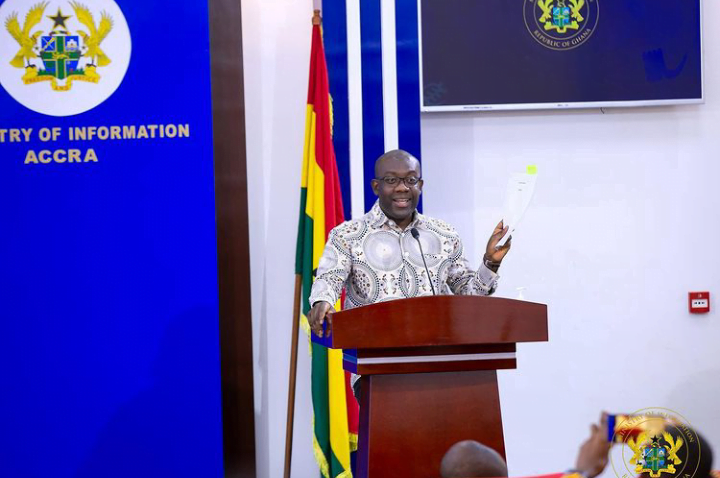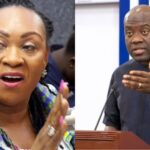Information Minister Kojo Oppong Nkrumah has hinted at plans of the New Patriotic Party ( NPP ) to break the 8 years change of government circle that seems to be becoming a pattern.
This, he said will enable the party break the 8-year cycle.
He was reacting to the Economist and Intelligence Unit (EIU) which has predicted victory for the main opposition National Democratic Congress (NDC) in the 2024 elections.
The Ofoase-Ayirebi lawmaker said at a press conference in Accra on Sunday that “They are guiding notes; nothing more. We consider them and use them to help us in the work that we do.
“This administration intends to work very hard to retain the confidence of the people so that by the time our tenure ends we can break this 8-year cycle of changing government even if the economy is doing well”.
The EIU said it expects the NDC party to choose a fresh presidential candidate for that elections.
“The next parliamentary and presidential elections are due in 2024. Under the constitutionally mandated term limits, Mr Akufo-Addo cannot run for a third term. Mr Mahama is reportedly considering whether to run again, but we expect the NDC to seek to revitalise its prospects with a fresh candidate.
“ After two terms of NPP government, we expect the NDC to win 2024 presidential election and to gain a small majority in parliament,” the latest report of the firm said
It added: “In the 2020 parliamentary election, the NPP and the NDC each won 137 seats, but in January the one independent Member of Parliament (MP) announced that he would co-operate with the NPP, giving it the 138 seats needed for an effective majority.
“With a razor-thin majority, the Akufo-Addo administration will require all of its MPs to vote with the party in order to push through signature policies, which is likely to necessitate deal-making to persuade MPs, which stands to obstruct immediate policy priorities, such as reducing a large fiscal overhang through expenditure cuts and tax rises”.
On the country debt situation, the EIU noted: “Economic structure risk remains CCC-rated. The current-account deficit, which is estimated to have averaged 2.8% of GDP over the past 48 months, is a drag on the score. The country is currently estimated to be in default, following a rise in principal arrears owed to external official creditors in 2018. Arrears will remain substantial, raising the perceived risk of a prolonged default among investors.”







